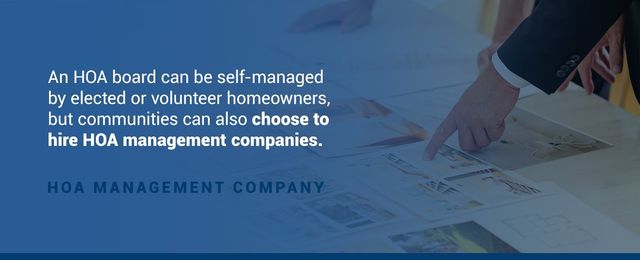From Financials to Upkeep: Understanding the Art of HOA Monitoring for Area Organizations
Managing a community association calls for a fragile equilibrium in between economic duties, reliable interaction, and effective maintenance operations. From supervising budgets and financial statements to coordinating upkeep jobs and implementing policies and guidelines, HOA administration can be a complicated art that demands a varied collection of abilities. In this conversation, we will check out the numerous aspects of HOA monitoring, from the complexities of economic administration to the significance of maintaining a well-functioning community. By diving right into these essential areas, we aim to give beneficial understandings and methods for grasping the art of HOA management, leaving you equipped with the knowledge and devices required to browse the obstacles that might develop within your neighborhood association.
Comprehending Financial Responsibilities
What are the crucial economic obligations that area associations need to recognize and take care of efficiently? Area associations play a crucial duty in managing the financial resources of their areas. hoa management san antonio. To guarantee the monetary health of the association, a number of crucial duties must be comprehended and taken care of effectively
First and primary, neighborhood organizations must establish and preserve a comprehensive budget. This includes properly approximating expenses and income sources, such as month-to-month charges, unique assessments, and rental earnings. A tactical spending plan permits associations to assign funds for essential expenses, such as repair and maintenance, insurance costs, and book funds for future resources projects.
Another essential monetary duty is the collection of analyses and charges. Community associations need to make sure prompt and efficient collection of these fees to cover operational expenses and preserve the monetary stability of the association. This includes executing a clear and clear settlement plan, resolving misbehaviors without delay, and applying any kind of essential lawful actions.
Additionally, community associations need to maintain accurate monetary records and prepare routine monetary declarations. These declarations give a clear photo of the association's financial wellness, including income, expenditures, and books. Regular economic reporting permits board participants and house owners to track the association's economic performance and make informed choices relating to budgeting and spending.
Last but not least, neighborhood associations need to abide by all applicable monetary policies and tax obligation demands. This includes declaring income tax return, keeping proper documents, and sticking to any kind of lawful obligations connected to monetary monitoring.
Efficient Communication and Cooperation
Efficient interaction and partnership are necessary for successful HOA monitoring and promoting a cohesive area. Community organizations depend on effective interaction to disseminate crucial details, address issues, and make certain transparency. A regular and clear line of communication in between the HOA board, locals, and building administration is vital for a well-functioning community.
One means to promote efficient interaction is with normal newsletters or e-mails that offer updates on area events, projects, and essential statements. This permits homeowners to remain informed and taken part in the neighborhood. Furthermore, developing open lines of interaction via community forums or city center meetings can offer a system for homeowners to voice their opinions, ask questions, and add to decision-making procedures.
Cooperation is just as vital in HOA monitoring. Urging cooperation amongst board participants, boards, and citizens fosters a feeling of possession and shared obligation. By including locals in the decision-making process and actively seeking their input, the area organization can develop an extra comprehensive and unified atmosphere.
To help with effective collaboration, HOA management need to develop clear goals and objectives, delegate responsibilities, and encourage synergy. Routine meetings, both casual and official, give a possibility for stakeholders to discuss concepts, address worries, and work in the direction of typical goals. By fostering a joint atmosphere, community organizations can harness the varied abilities, knowledge, and viewpoints of their citizens to drive positive adjustment and enhance area living.
Simplifying Upkeep Workflow
Streamlining upkeep procedures is vital for affordable and reliable HOA management. By applying effective approaches, community hop over to here organizations can make certain that maintenance jobs are executed smoothly and in a prompt fashion, reducing disturbances and maximizing resident complete satisfaction.

In enhancement, utilizing modern technology can significantly improve upkeep operations. Carrying out a computerized maintenance administration system (CMMS) permits organizations to track work orders, routine preventive maintenance, and keep an arranged document of maintenance tasks. This not just boosts effectiveness but likewise supplies a clear and accountable system for both locals and monitoring.
Moreover, contracting out certain maintenance jobs can additionally improve procedures. By working with specialized professionals for jobs such as swimming pool maintenance or landscaping, organizations can make certain that these jobs are dealt with by experts with the needed competence, releasing up inner sources to concentrate on other elements of HOA management.
Focusing On Regulations and Laws
To make sure orderly and efficient community living, focusing on and applying laws and regulations is crucial for reliable HOA administration. hoa management san antonio. Neighborhood organizations count on a collection of guidelines to shield and maintain an unified atmosphere property worths. By clearly defining and prioritizing rules and laws, HOA management can guarantee that locals understand their responsibilities and assumptions
One of the initial steps in prioritizing regulations and guidelines is to determine those that are most essential for the area's wellness. This might include conducting a comprehensive testimonial of the existing laws and guidelines and recognizing any type of voids or areas that require improvement. It is crucial to include area members in this procedure to ensure their buy-in and to attend to any suggestions or worries they may have.
When one of the most essential regulations and regulations have actually been identified, HOA administration need to ensure that they are successfully communicated to homeowners. This can be done through different means, such as e-newsletters, e-mails, community conferences, and posting notifications in common locations. Regular and clear communication is essential to make sure that residents understand the guidelines and guidelines and understand the repercussions of non-compliance.
Enforcement of policies and laws is just as important in preserving a well-functioning area. HOA management need to establish a fair and consistent enforcement process, which may consist of warnings, fines, and other suitable steps. hoa management san antonio. It is crucial to strike an equilibrium between implementing the laws and regulations and keeping favorable connections with locals
Navigating Legal and Compliance Issues
Navigating legal and conformity problems is crucial for HOA management to guarantee adherence to legislations and policies. Area organizations have to a fantastic read run within the bounds of the legislation to preserve the trust and confidence of property owners and stakeholders. Failing to follow legal requirements can result in legal conflicts, penalties, and damages to the association's online reputation.
To navigate these concerns efficiently, HOA monitoring must remain upgraded on government, state, and neighborhood regulations that control area organizations. This includes understanding my site legislation pertaining to fair real estate, home, taxation, and work management. Conformity with these laws entails executing plans and procedures that shield the legal rights of homeowners and make certain openness in economic and operational issues.
Along with lawful obligations, HOA management need to additionally adhere to the association's regulating papers, such as the laws, limitations, problems, and commitments (CC&R s) These records lay out the rules and regulations that govern the community and may include arrangements relating to residential or commercial property maintenance, architectural guidelines, and dispute resolution processes.

Conclusion
In final thought, grasping the art of HOA monitoring for community associations requires a comprehensive understanding of financial responsibilities, efficient communication and collaboration, improving maintenance operations, prioritizing policies and policies, and navigating legal and conformity concerns. By efficiently carrying out these methods, neighborhood associations can ensure the smooth functioning and total health of their neighborhoods.
By delving into these vital locations, we aim to offer valuable insights and strategies for mastering the art of HOA monitoring, leaving you outfitted with the expertise and devices needed to navigate the obstacles that might occur within your community organization.
Neighborhood associations play a vital role in managing the funds of their neighborhoods. Area associations have to guarantee reliable and timely collection of these costs to cover operational costs and keep the monetary security of the organization. By promoting a collaborative environment, area associations can harness the varied skills, expertise, and point of views of their locals to drive positive modification and boost neighborhood living.
To browse these concerns efficiently, HOA monitoring should stay upgraded on government, state, and local laws that control community associations.